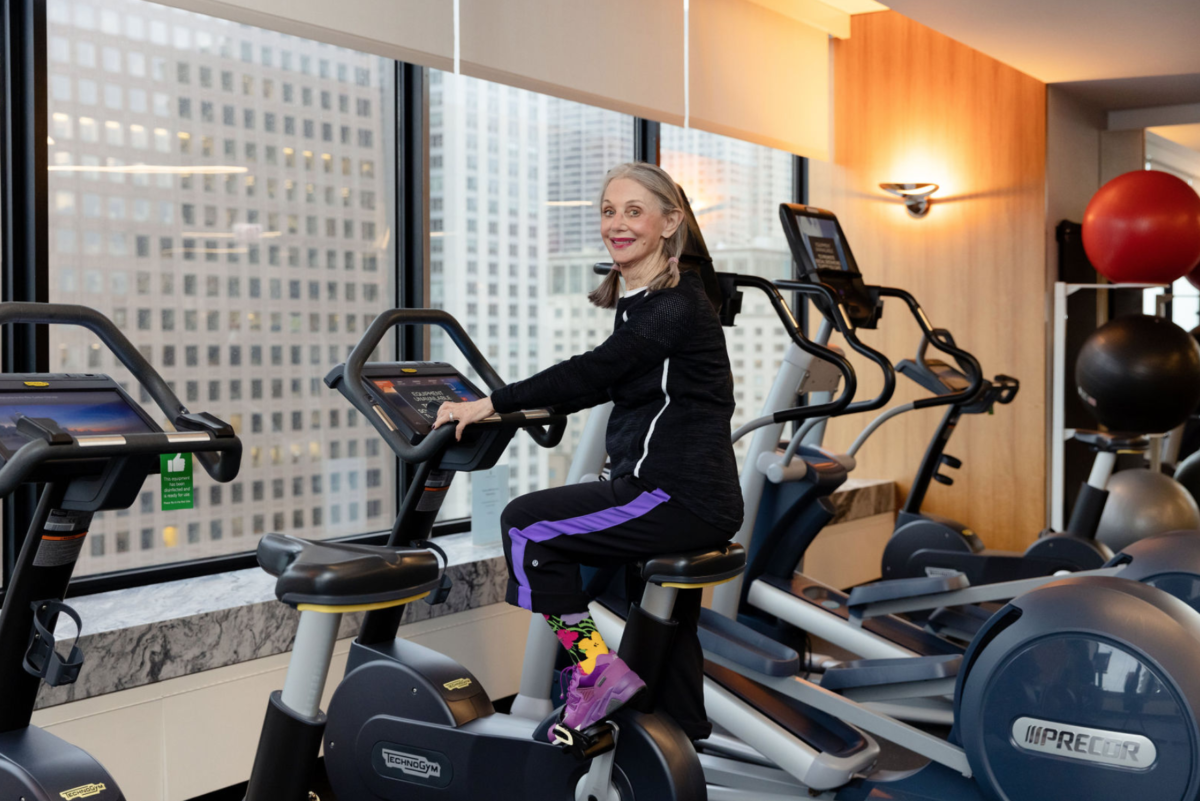
As much as we try to delay and deny it, aging is something we simply can’t avoid. Fortunately, there are many things we can do to make the transition smoother, and staying active is a great start. Exercise improves mobility, maintains strength in your muscles and bones, supports heart health.
That said, your fitness routine may need to be adapted a bit as you age, particularly when it comes to workout recovery. Research suggests that our muscles take a little longer to recover as we get older. Protein synthesis and cellular regeneration also take a little longer than they used to.
The good news is our bodies were designed for movement. Keeping your body moving as you age improves not only your fitness but your overall wellness and longevity, too. Here’s what you can do to support workout recovery as you age so that you can remain mobile, flexible, and strong, well into your retirement years.
It All Starts with Protein
Your body can’t efficiently recover from a workout if it doesn’t have the right fuel. The best way to jumpstart muscle repair is to consume 20 to 30 grams of protein right after your workout.
But, don’t stop there! Your body needs access to protein all day long. Include some protein at each meal. Experts recommend at least .8 grams of protein for every kilogram of body weight, and older adults may need even more than that.
In fact, research shows that adults between the ages of 52 and 75 will maintain more muscle if they consume 1.5 grams of protein for each pound of bodyweight. When combined with exercise, boosting your protein intake is a great way to counteract gradual muscle loss as you age. So, if you want to speed recovery and remain active, you’ve got to fuel those muscles!
If you’re considering switching to a plant-based diet plan for overall health as you age, and want an easy, high-protein post-workout snack, go for a soy-based protein drink. Not only are they convenient and portable, but they also pack a powerful boost of high-quality protein for muscle and energy recovery that may be lacking in a vegetarian diet.
Proper Warm-Up & Cool Down Make a Big Difference
Preparing your muscles to move is key for preventing soreness and speeding recovery after you work out. Not only that, but it helps to prevent injury, which is something we’re more prone to as we age. The best way to warm up is 5 or 10 minutes of low-impact cardio, such as walking or jogging along with arm circles.
Proper cool down after you work out is also key for recovery. Don’t just stop abruptly at the end of your planned workout. Slow down gradually to give your muscles a chance to cool down. If you were doing cardio, walk for a few minutes. On weightlifting days, try a few minutes of yoga. Focus on bringing your heart rate down slowly.
Once you’ve cooled your muscles down and gotten your heart rate back to normal, it’s time to do some static stretches. Post-workout is the best time to stretch because that’s when your muscles are the most pliable.
Be sure to stretch any muscles you worked during your workout, as well as all of your major muscle groups. Holding each stretch for around 30 seconds will promote blood flow to the area and reduce post-workout soreness.
Rest Days Are Not Optional
When you’re creating your fitness routine, scheduling rest days is every bit as essential as scheduling your workouts. If you don’t allow enough time for proper recovery, you increase your risk of injury. Remember, your tissues take longer to heal as you age, so recovery days are extra important after 50.
The ideal amount of rest and recovery time varies according to your fitness level and the intensity of the exercise you’re doing. If you’ve been exercising for years, you won’t need as much recovery time as someone who’s just starting out. In fact, athletes who have been working out for years often find that age really doesn’t slow their recovery process much.
So, some people may need one full day for recovery between workouts, others may need two or more. Others may be fine with just a day or two off each week. Listen to your body. If your performance is suffering or you’re having a hard time finding the energy to work out, you probably aren’t giving your body enough time to recover.
That being said, you can still take a walk, do some yoga, go for a swim, or work opposing muscle groups on your rest days. For example, if you worked your upper body with weights one day, you could do a low-impact lower body workout the next, such as cycling.
Wrapping Things Up
How often should you work out as you age?
There’s really no one-size-fits-all rule for how often you should work out as you age. It’s really up to you and what your goals are. According to the American Heart Association, you’ll get the most health benefits if you do at least 30 minutes of moderate cardio five times a week.
If you can’t seem to find the motivation to work out that often, the key is to find a type of exercise that you truly enjoy. Don’t try to commit to a workout you truly hate because you won’t do it as often. There’s no reason exercise can’t be fun and something you look forward to!
Consider heading to the pool or beach for a swim. Or, sign up for an exercise class and turn your workout into a social activity. Give hiking or biking a try or find a group of friends to go walking with. There are so many options out there, so don’t drag yourself to the gym if it’s not something you enjoy.
What tips and tricks do you have for recovering from workouts as we age? Let us know in the comments at the bottom of this page!
NOTE: This blog provides general information and discussions about health and related subjects. The information and other content provided in this blog, or in any linked materials, are not intended and should not be construed as medical advice, nor is the information a substitute for professional medical expertise or treatment.
If you or any other person has a medical concern, you should consult with your health care provider or seek other professional medical treatment.

Nicole has been obsessed with beauty and fashion since she was a young girl, always flipping through Vogue and stealing her mother’s cosmetics bag to experiment. She’s a former wedding makeup artist who loves spending her free time trying new products and staying up to date on the latest beauty and style trends. While Nicole’s days are now spent contributing to fashion, beauty, and lifestyle sites from home while raising her kids, she can still always be found putting looks together, even if it’s just for a trip to the grocery store!
If you enjoyed this article, please subscribe. You will get each daily story delivered straight to your inbox.


+ show Comments
- Hide Comments
add a comment